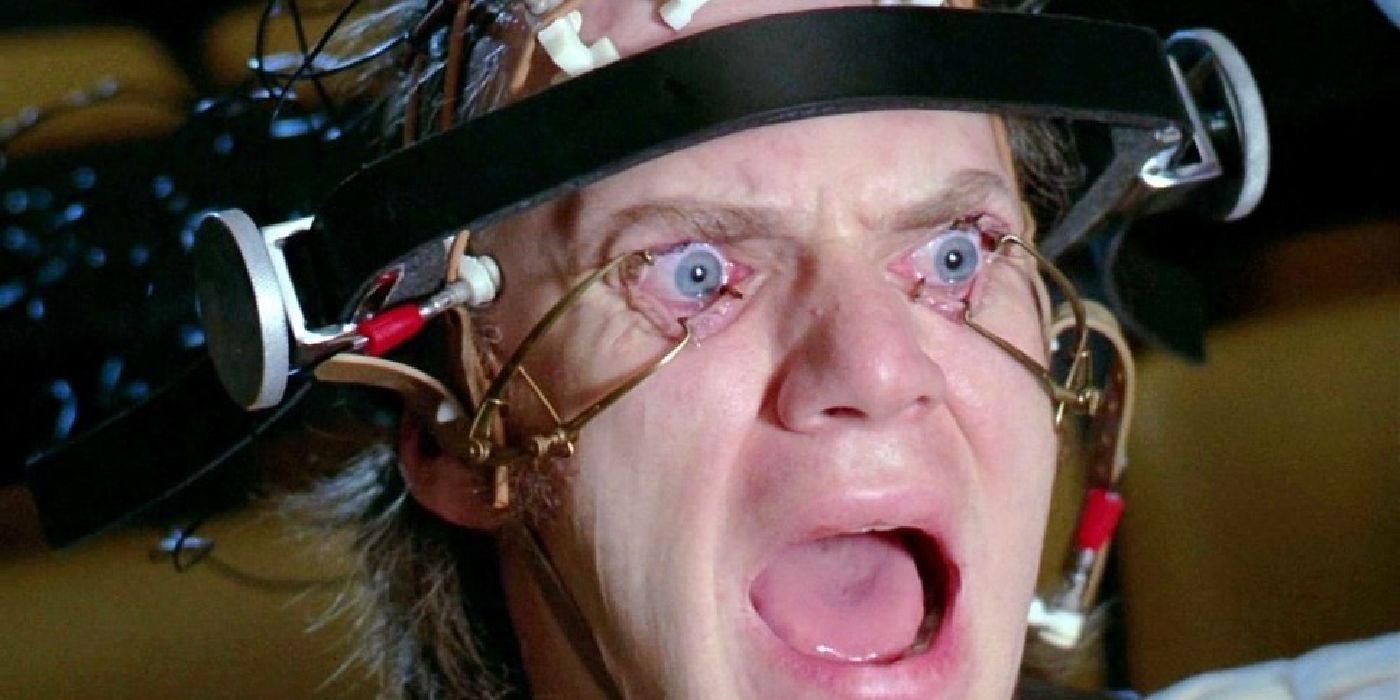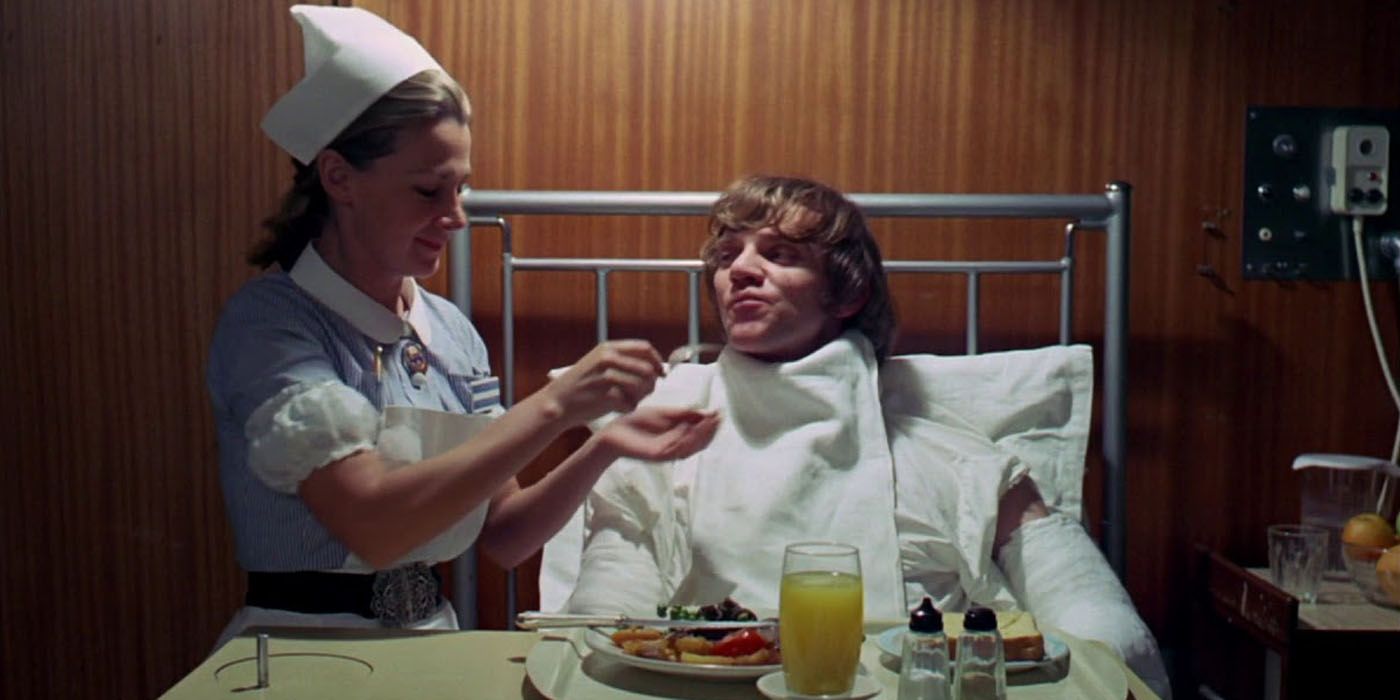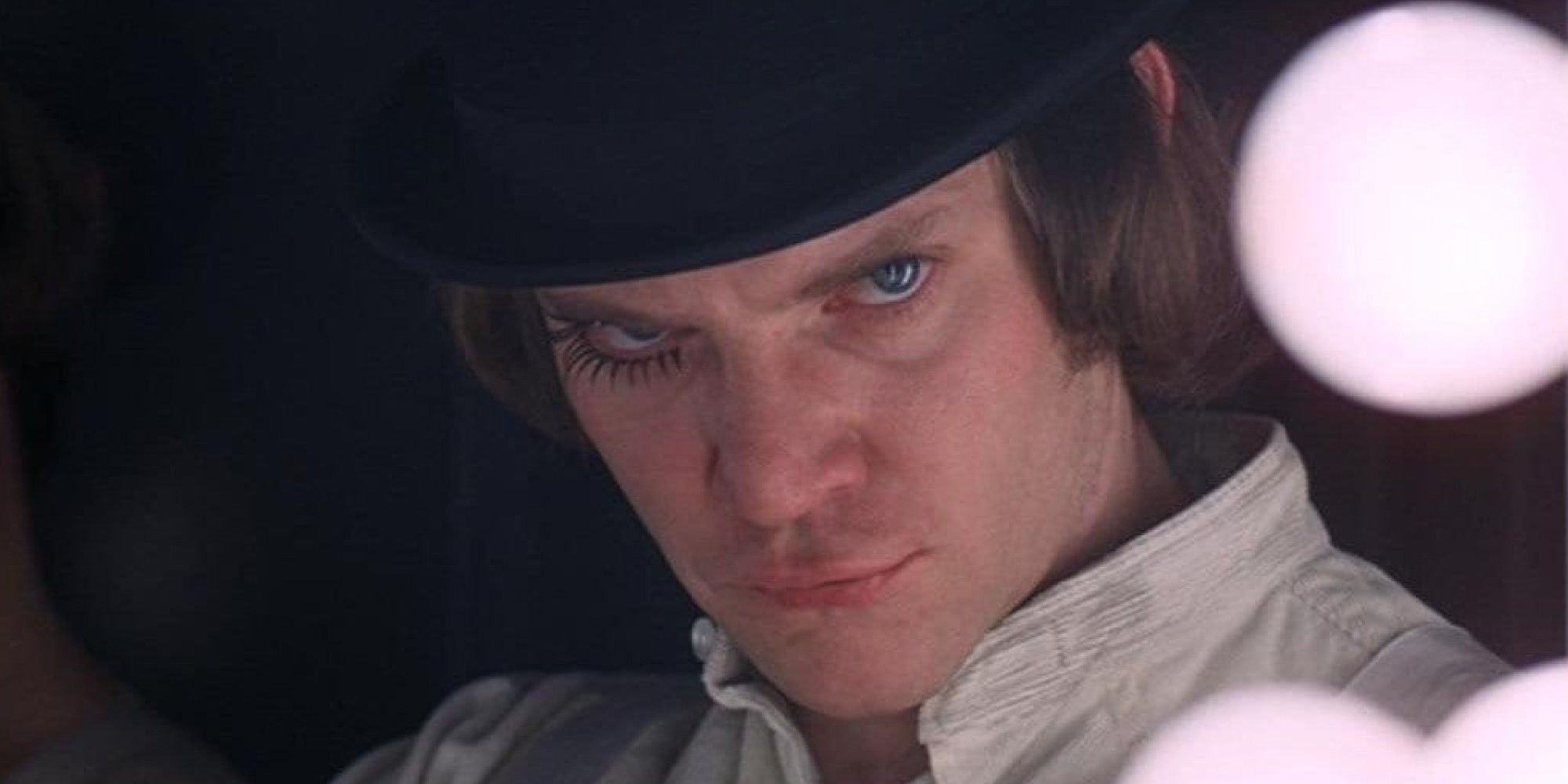A Clockwork Orange: What The Movie’s Title Really Means
The title of Stanley Kubrick’s A Clockwork Orange hints at the harmful effects of imposing rigid social conditioning on an individual’s free will.
You Are Reading :A Clockwork Orange What The Movies Title Really Means

What does the title A Clockwork Orange, really mean? Stanley Kubrick’s movie is based on the dystopian novel by British author Anthony Burgess of the same name. Set in a futuristic, culturally impoverished version of London, the film tracks Alex and his gang of “droogs” as they roam the city in grotesque costumes and exaggerated codpieces, inflicting atrocious violence on rival gangs and hapless citizens. Thematically, the A Clockwork Orange title refers to the methods by which the prison system denies free will to Alex DeLarge (Malcolm McDowell), the film’s hyperviolent protagonist.
Both the novel and Kubrick’s film remain surprisingly popular, despite the extreme violence. A Clockwork Orange seems to lament the fact that, as one aged victim puts it, “It’s a stinking world because there’s no law and order anymore! It’s a stinking world because it lets the young get on to the old!” In other words, there are no responsible authority figures to help guide the youth toward constructive efforts and away from thoughtless violence.
At the height of his violent escapades, Kubrick’s Alex, a teenager at the time, commits a home invasion and injures one woman so horribly that she dies. Later, while facing the prospect of a lengthy prison sentence, Alex chooses to undergo the controversial “Ludovico Technique” — a kind of brainwashing program that renders Alex incapable of performing violence, though at the expense of his own free will. During treatment, Alex is strapped to a chair and forced to watch violent films. He is then injected with a chemical agent that makes him physically sick, thus conditioning him to associate violence with physical illness.
As many critics have mentioned, Burgess’s title is inspired by the Cockney expression “queer as a clockwork orange” (“queer” meaning “strange” or “unusual”). Both the novel and the film seem to imply that natural oranges, like Alex himself, are living things that should be allowed to grow in organic and unpredictable ways. By contrast, the Ludovico technique involves an attempt to reduce the natural complexity of a living, organic “orange” into a mindless and mechanized “clockwork” object. After all, the Ludovico technique doesn’t help Alex become a better person; even after treatment, Alex still wants to perform violent acts, (as opposed to the controversial ending in the book, A Clockwork Orange). Rather, the treatment instills Alex with a mechanized response to violence that renders him incapable of choosing to act on his impulses. For both Burgess’s novel and Kubrick’s film, this ultimately makes the treatment a failure.
What “A Clockwork Orange” Really Means

The true meaning of the A Clockwork Orange title is best reflected when the practitioners of the Ludovico technique hold a public demonstration to showcase their success with Alex. First, they bring a bare-breasted woman into Alex’s company on purpose, as they wish to demonstrate that he is now a reformed man, remotely incapable of reverting to his heinous ways. Even though Malcolm McDowell’s A Clockwork Orange character wants desperately to assault the woman, his conditioning prevents him from doing so. Later, a man comes onstage to insult and provoke Alex. Angry and humiliated, Alex clearly wants to engage in violence, but instead, he falls to the floor, writhing and gagging, and offers to lick the man’s boot. Although Alex demonstrates a conditioned aversion to violence, the prison chaplain notes that “The boy has no real choice, has he? He ceases to be a wrongdoer. He ceases also to be a creature capable of moral choice.” In other words, the film questions whether the eradication of human free will is a fair price to pay for the prevention of societal violence.
How Did A Clockwork Orange Get Its Title

Apart from being inspired by the popular Cockney expression, Burgess opined that the title of the book was meant to reflect an added layer of interpretation, implying a cross between the organic, lively, sweet nature of life and the cold, disciplined, and mechanical aspect of conditioning via the Ludovico treatment. This was deliberately used by Burgess to create an oxymoron, reflecting Alex DeLarge’s fate in A Clockwork Orange after he undergoes reconditioning, and how free will plays a seminal role in adding true purpose and meaning to human existence. Moreover, it is important to note that Alex believes that evil is a natural state that exists within humanity, a viewpoint that is opposed by institutions of power and control in the film. This is a direct challenge to Alex’s sense of self and who he is, a lover of Beethoven and “ultraviolence” at heart, both of which are torn away from his core personality, rendering him a tool for control and manipulation. In essence, however disturbing its visual and thematic content, A Clockwork Orange remains a popular film and shows like Truth Seekers and American Horror Story: Asylum have paid tribute to the classic tale. Perhaps that’s evidence that the film’s exploration of free will is complex enough to remain relevant to today’s audiences.
Link Source : https://screenrant.com/clockwork-orange-movie-title-meaning-explained/
